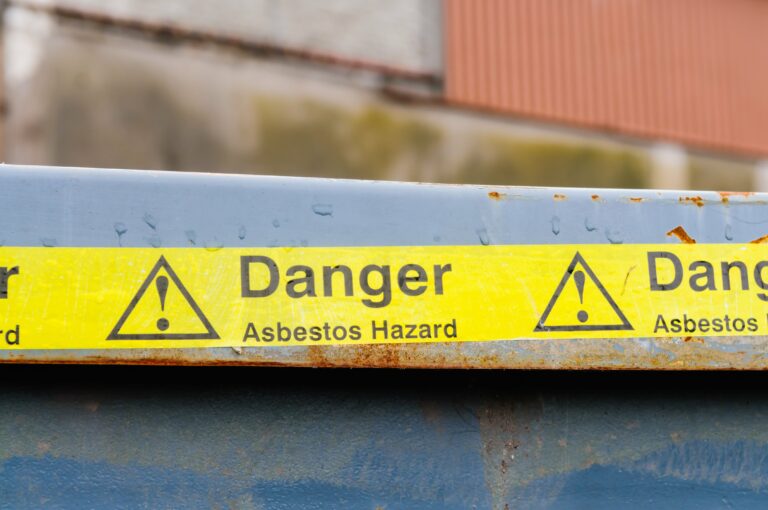Blog
Pushed out the door? | What employers need to know about constructive dismissal

Not all dismissals involve an employer giving an employee their marching orders. In some cases, an act or acts committed by the employer creates such a hostile working environment that it makes it impossible for the relationship to continue.
In situations where an employee is effectively forced out, their resignation is actually considered a dismissal, as it is not regarded as a voluntary decision. As such, they are entitled to resign without providing notice and may bring a claim for constructive dismissal.
What are the requirements for a constructive dismissal claim?
There must be a fundamental breach of contract by the employer.
In other words, the employer's actions must be serious enough that the employee is left with no option but to resign.
The employee's resignation must be as a direct result of an actual or anticipatory breach.
An anticipatory breach – whereby the employer indicates their intention not to perform their obligations – negates the employee's responsibility to perform their requirements under the contract.
The employee would be expected to have actually left their job in relation to the breach.
If they remain with the employer too long following the breach, it may be considered that they have accepted the conduct and ‘affirmed’ the contract. Failure to leave may also undermine the employee's claim that the relationship become so unbearable that they could not continue working for the employer.
What conduct or treatment could result in a claim for constructive dismissal?
In order for constructive dismissal to apply, the employer’s actions must breach a fundamental term that goes to the root of the employee’s contract.
This covers both express contractual terms (those that are explicitly outlined in the employee’s Contract of Employment or that have been verbally agreed by the parties), such as terms about pay or working hours, as well as implied terms (those that are not written down but that are still understood to exist because of the conduct of the parties).
The most commonly cited implied term in constructive dismissal claims is the duty of mutual trust and confidence. While this duty applies on both sides of the employment relationship, most claims citing breach of trust and confidence are brought by employees. Common causes include:
The most commonly cited implied term in constructive dismissal claims is the duty of mutual trust and confidence. While this duty applies on both sides of the employment relationship, most claims citing breach of trust and confidence are brought by employees. Common causes include:
Refusing to pay an employee contractual overtime.
Taking away an employee's contractual benefits.
Demoting an employee without reasonable and proper cause.
Reducing an employee's hours.
Failing to address an employee's grievance.
Requiring an employee to relocate to another site without proper notice.
Not providing a safe working environment.
Remember, this is a mutual duty. An employee may also be found to have breached their duty of trust and confidence by, for example, making disparaging comments about their employer on social media, becoming involved with a competitor, or falsely claiming sick pay or expenses.
Constructive dismissal may relate to one very serious incident or a series of events that culminated to one ‘last straw’ incident. Whether an employer’s conduct or treatment is deemed serious enough to constitute constructive dismissal will depend on the specific facts and circumstances of each case.
Does the employee need to raise a grievance first?
Unfortunately for employers, the fact that an employee didn’t raise a grievance in response to the breach does not provide a defence.
However, employees should attempt to resolve any workplace dispute with their employer by speaking to their line manager and going through the steps set out in the organisation’s formal grievance procedure. In cases where an employee fails to do this and to give the employer an opportunity to remedy the situation, it may result in a reduction in the amount of compensation awarded to them.
What’s the difference between constructive dismissal and unfair dismissal?
Constructive dismissal concerns the employer’s conduct and treatment towards the employee and how that breach leaves an employee with no choice but to resign.
Unfair dismissal occurs when an employer:
- Dismisses an employee for a reason that does not fall within the scope of one of the five potentially fair reasons;
- Does not act reasonably in the circumstances (i.e. fails to consider alternatives to dismissal); or
- Does not follow a fair redundancy or dismissal process.
How can employers prevent claims for constructive dismissal?
It is notoriously tricky for employees to satisfy the conditions required to bring a claim for constructive dismissal. This is especially true in respect to the second condition – resigning in response to the employer’s breach. The employee will need to demonstrate they resigned as a direct result of the employer’s breach and not for other reasons, such as to get around restrictive covenants.
However, this doesn’t mean employers should conduct themselves as though they are immune to legal ramifications, as claims do happen and defending them can be incredibly stressful, time-consuming and involve significant resource.
Some practical ways to reduce risk include:
Make sure that you and your managers are familiar with the terms and conditions of your contracts and are careful not to take any steps that may violate them.
Keep in mind that if you wish to make changes to a contractual term, it is safest to consult with the employee first. Failure to do so may be considered a breach of contract.
Train managers to spot workplace problems and intervene at the earliest possible opportunity to prevent them from escalating.
Encourage employees to raise a formal grievance if they have a complaint. By dealing with the issue through the proper channels, you can limit the risk of employees feeling that the only way to rectify the problem is to resign.
In need of practical, professional advice?
At WorkNest, we help employers to create engaged, productive teams and proactively prevent difficult and destabilising people problems. Our unlimited, fixed-fee service gives you access to ongoing advice and support from a dedicated, highly-qualified professional, minimising legal risk and disruption to your team.












